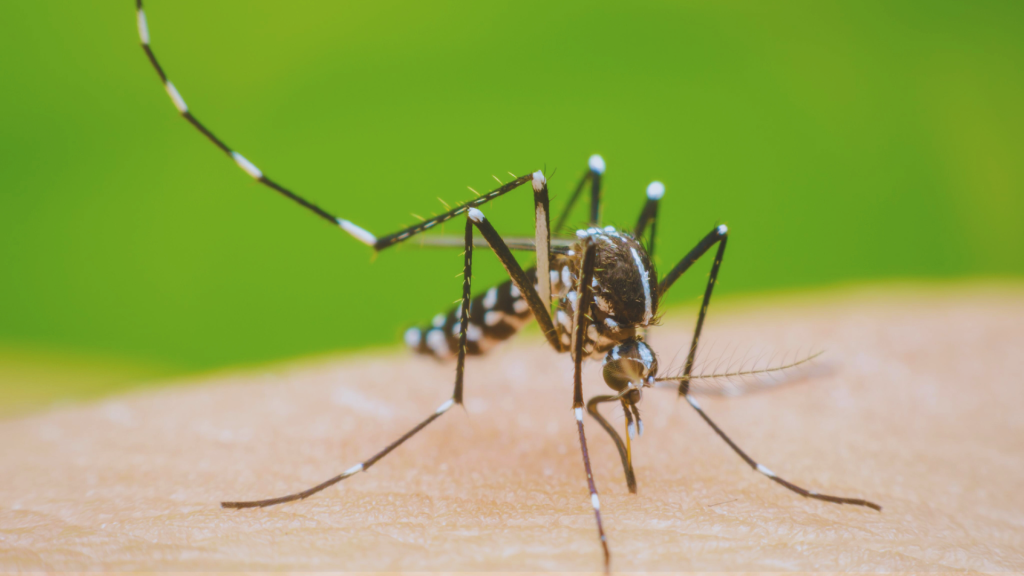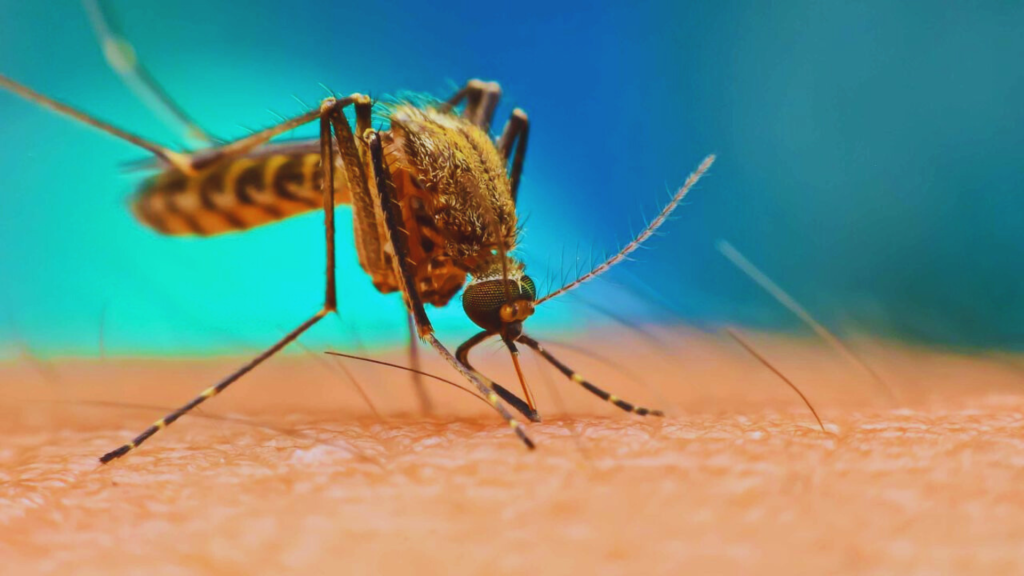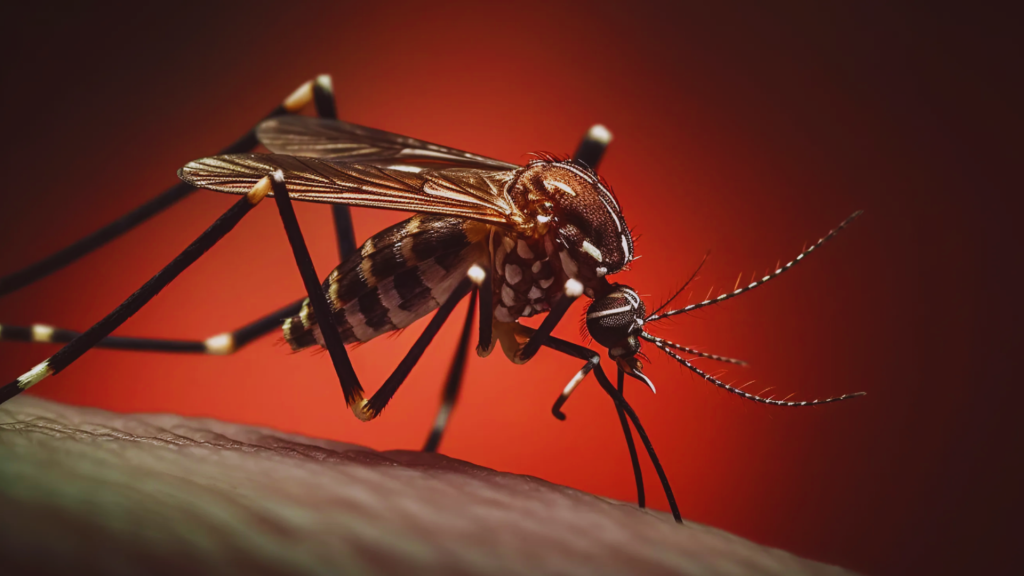What is dengue
Dengue is a type of dengue fever caused by a virus known as dengue virus. The virus is transmitted to humans by the dengue mosquito (Aides Aegyptus).
The main symptoms of dengue fever are fever, abdominal pain, watery eyes, muscle and bone pain and red rash on the skin. This disease often has the onset of severe disease, which may require appropriate treatment including blood transfusion and ICU.
Dengue Aides mosquito or old name tiger mosquito is mainly spread in raw or smelly environment during noon. This disease is spread through mosquitoes. Aides mosquitoes are predominantly blue in color

What are the causes of dengue disease?
1. Dengue virus (DENV): It is caused by a virus, which is transmitted by Aides mosquitoes. Dengue can be caused when a mosquito is infected with this virus and then infects a human.
2. Aides mosquitoes: The main types of this mosquito are Aides Aegyptus and Aides alba pectus. These mosquitoes can dangerously transmit the dengue virus and these mosquitoes can enter people’s homes or other places and cause dengue disease.
3. Immunity to low blood pressure: In case of dengue disease, people who have low blood pressure may be vulnerable to dengue mosquito transmission.
4. Unrewarding Environment: Dengue-carrying mosquitoes can thrive where the water table is high and not clear. This mosquito thrives mainly in unrewarding water places.
5. Previous exposure to dengue: Once exposed to dengue, a person develops an immunity that makes them highly susceptible to mosquito transmission.

What are the symptoms of dengue?
1. Lateral pain: Dengue usually causes pain in the lateral part of the body. It can cause muscle or bone pain for no reason.
2.Increase in urine: After dengue infection, there may be increase in urine, due to which the person may experience excessive thirst.
3. Change in color of urine: The color of urine of dengue infected person may change. It is believed that a person’s urine turns yellow or purple after being infected by the dengue mosquito.
4. Fever: One of the main symptoms of dengue is fever. Fever usually settles and causes moderate activity.
5. Headache: Headache may be experienced after dengue infection. It can usually be in a muscle or in the urine.
6. Mangham Spat: Dengue can cause Mangham Spat, which can be felt in bones or other parts.
7.Illness in eyes: After dengue infection, eye illness may occur due to darkness, change in location and other eye problems.
What is the cure for dengue?
1. Mosquito control: Since dengue virus is transmitted by mosquitoes, mosquito control is a primary transmission method. Keeping water around the house and regular mosquito control activities are essential to prevent dengue.
2. Clean environment: It is important to keep your environment clean and clear to reduce the risk of dengue infection. Mosquito control has a special role in places where mosquitoes and running water are common, especially in wall gaps, water olives and uneven water catchments.
3. Cleanliness and personal precautions: Follow the advice of especially clean sitting to eliminate the risk of mosquito bites. Get treatment for dengue fever quickly and contact a doctor if necessary.
4. Emergency treatment: Symptoms of dengue fever are likely to indicate acute conditions. It is important to keep in mind that failure to receive individualized treatment can be life-threatening. So get treatment as soon as possible.

What is the prevention of dengue disease?
1. Clean environment: It is important to keep the environment clean and clear to reduce the risk of dengue infection.
2.Primary Personal Protection: Clean sitting and wearing clean clothes can be considered as primary personal protection to avoid mosquito bites.
3. Self-care: To avoid mosquito bites, it is important to have good shelter and follow home mosquito control measures.
4.Dengue Vaccination: Dengue vaccination can be taken if available. It can be effective in preventing dengue disease.
5.Precautions: If symptoms of dengue fever appear, one should contact a doctor to protect oneself and others from the disease.
6. Daily quantity of exercise and healthy food: It is important to take care of your daily food during this time. Eating a healthy and nutritious diet can help reduce the risk of contracting dengue.
7.Personal Prevention: Use of mosquito repellent sprays, personal hygiene, preparation and planning for clean perimeters or taking these steps should be taken at any given time that increases the potential for dengue mosquito transmission.
Providing services for dengue disease?
1.Medical examination: Dengue affected person is first medically examined. Treatment is given according to the test results according to the patient’s condition.
2. Prescription and supply of medicines: Prescription and medicines are provided as per the advice of the expert doctor in the treatment of dengue disease. This medicine is used for dengue disease symptom management, symptom reduction and other specific purposes.
3. Hydration and recovery: Hydration is provided to dengue patients to boost their immune system. For example, practicing quantitative water and side effects drinks. Very slow and false determinations are not advised and treatment is given.
4.Medical advice and support: Medical advice can be obtained during the treatment of dengue patients and how family and social support can be provided for the minor treatment of the patient. 5.Isolation of sick person: Care is taken over the dengue patient and the sick person is requested to stay away from contact with other health care persons.
Raising awareness of dengue disease :

It is important to raise awareness of dengue disease so that people are aware of the risk of the disease and are able to take appropriate action. This can generally be done in three ways:
1.Education: People need to be educated about the causes, symptoms, prevention and treatment of dengue. This can be done through educational institutions, governments, or voluntary organizations.
2. Awareness Promotion and Efforts: Efforts should be made to make everyone aware of the risk and prevention of dengue disease. This can be done through posters, flyers, TV or radio and social media.
3.Education on prevention methods: Watering, mosquito prevention, replacement of surrounding mosquito beneficial nature and proper personal precautions are important to prevent this disease.
Also, special awareness campaigns for dengue prevention can be conducted through local governments and voluntary organizations. Through this campaign, safe olives and cleanliness of the environment can be maintained which also helps in preventing the spread of dengue disease.




